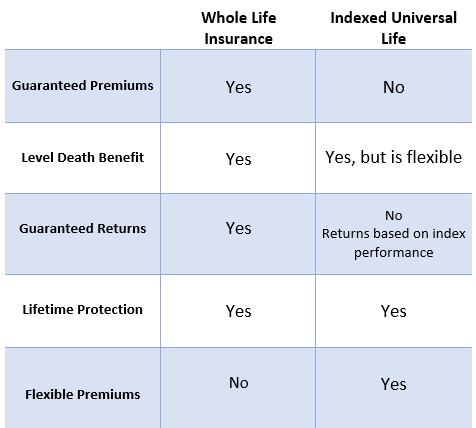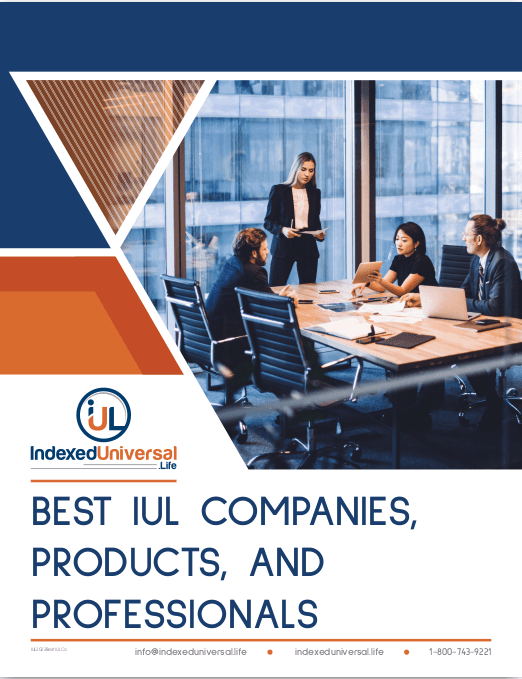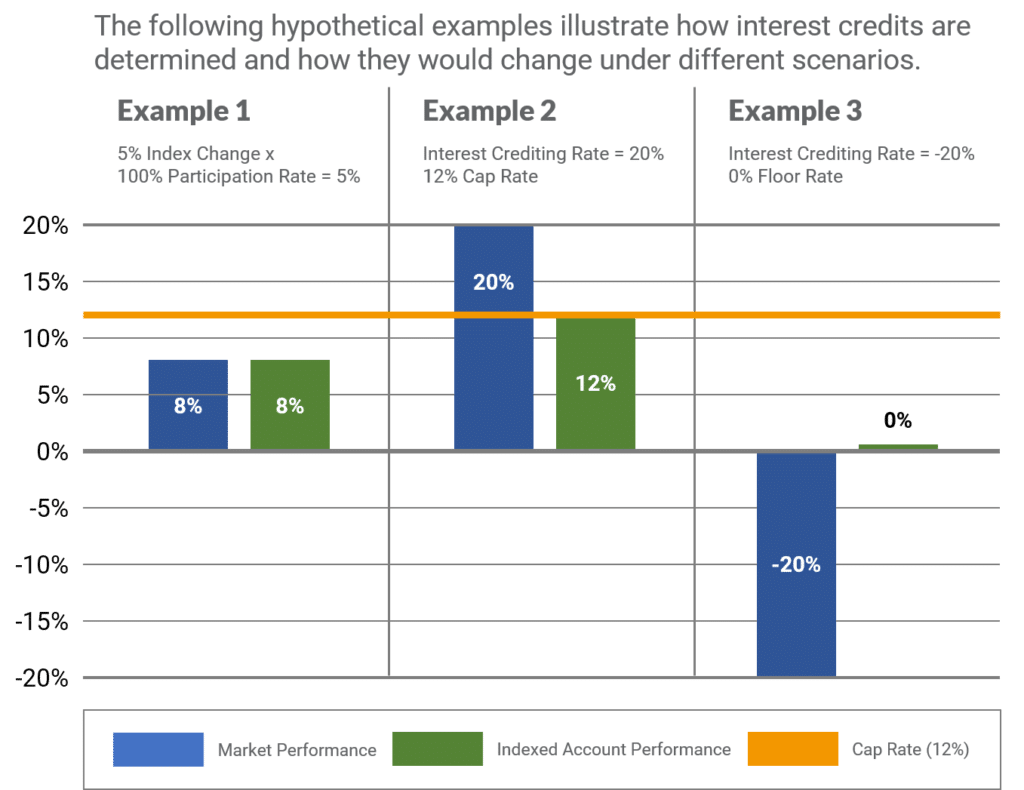All Categories
Featured
Table of Contents
Do they contrast the IUL to something like the Lead Total Stock Market Fund Admiral Shares with no lots, an expense ratio (EMERGENCY ROOM) of 5 basis factors, a turn over ratio of 4.3%, and a phenomenal tax-efficient document of distributions? No, they compare it to some dreadful proactively managed fund with an 8% tons, a 2% EMERGENCY ROOM, an 80% turn over ratio, and a dreadful document of short-term funding gain circulations.
Mutual funds usually make annual taxed distributions to fund proprietors, also when the value of their fund has dropped in worth. Mutual funds not just require earnings reporting (and the resulting annual taxes) when the common fund is going up in worth, yet can likewise enforce revenue taxes in a year when the fund has gone down in value.
You can tax-manage the fund, collecting losses and gains in order to reduce taxable distributions to the financiers, however that isn't somehow going to change the reported return of the fund. The possession of common funds might need the shared fund proprietor to pay approximated tax obligations (universal life target premium).

IULs are easy to position to ensure that, at the owner's fatality, the beneficiary is not subject to either revenue or inheritance tax. The very same tax obligation reduction methods do not function almost as well with mutual funds. There are countless, typically expensive, tax traps connected with the moment purchasing and marketing of common fund shares, traps that do not relate to indexed life Insurance coverage.
Opportunities aren't really high that you're mosting likely to be subject to the AMT as a result of your shared fund distributions if you aren't without them. The rest of this one is half-truths at ideal. For instance, while it is real that there is no earnings tax obligation due to your successors when they acquire the proceeds of your IUL policy, it is likewise true that there is no earnings tax due to your successors when they acquire a shared fund in a taxable account from you.
Whole Life Vs Iul
There are better ways to prevent estate tax problems than getting investments with reduced returns. Common funds may cause revenue tax of Social Safety and security advantages.

The development within the IUL is tax-deferred and may be taken as tax obligation free revenue through loans. The plan owner (vs. the common fund supervisor) is in control of his or her reportable revenue, therefore enabling them to reduce or perhaps eliminate the taxes of their Social Safety and security benefits. This is fantastic.
Here's another minimal problem. It's true if you buy a shared fund for claim $10 per share just before the circulation date, and it distributes a $0.50 circulation, you are after that mosting likely to owe tax obligations (probably 7-10 cents per share) in spite of the truth that you haven't yet had any kind of gains.
In the end, it's actually regarding the after-tax return, not how much you pay in tax obligations. You are going to pay more in tax obligations by utilizing a taxed account than if you acquire life insurance policy. Yet you're likewise possibly mosting likely to have even more money after paying those taxes. The record-keeping demands for having shared funds are dramatically more complicated.
With an IUL, one's records are kept by the insurer, duplicates of yearly declarations are sent by mail to the proprietor, and circulations (if any type of) are completed and reported at year end. This is additionally kind of silly. Obviously you need to maintain your tax records in case of an audit.
Accumulator Universal Life Insurance
Barely a reason to buy life insurance policy. Common funds are frequently part of a decedent's probated estate.
Furthermore, they go through the hold-ups and expenditures of probate. The profits of the IUL policy, on the other hand, is always a non-probate circulation that passes beyond probate straight to one's named recipients, and is as a result not subject to one's posthumous creditors, undesirable public disclosure, or similar delays and costs.
We covered this under # 7, but simply to evaluate, if you have a taxed common fund account, you should put it in a revocable trust (or perhaps much easier, utilize the Transfer on Fatality classification) to avoid probate. Medicaid incompetency and lifetime income. An IUL can supply their proprietors with a stream of revenue for their whole lifetime, regardless of the length of time they live.

This is advantageous when organizing one's affairs, and transforming properties to income prior to an assisted living home arrest. Shared funds can not be transformed in a comparable way, and are usually thought about countable Medicaid assets. This is one more stupid one advocating that inadequate people (you know, the ones that require Medicaid, a federal government program for the bad, to spend for their assisted living home) ought to use IUL rather of common funds.
Iul Insurance
And life insurance policy looks horrible when contrasted relatively against a pension. Second, people that have money to get IUL above and past their retired life accounts are mosting likely to need to be dreadful at managing cash in order to ever get Medicaid to pay for their assisted living home prices.
Chronic and terminal ailment cyclist. All plans will certainly allow an owner's very easy access to cash money from their policy, commonly waiving any kind of abandonment fines when such people suffer a major illness, need at-home treatment, or end up being restricted to a retirement home. Common funds do not give a comparable waiver when contingent deferred sales costs still relate to a shared fund account whose proprietor needs to market some shares to fund the prices of such a remain.
Universal Life Insurance Good Or Bad
You get to pay more for that benefit (cyclist) with an insurance coverage plan. Indexed global life insurance coverage provides fatality advantages to the beneficiaries of the IUL proprietors, and neither the owner nor the recipient can ever lose money due to a down market.
Now, ask on your own, do you really need or desire a survivor benefit? I certainly do not need one after I reach financial independence. Do I desire one? I mean if it were cheap enough. Certainly, it isn't affordable. On average, a purchaser of life insurance policy spends for the real price of the life insurance policy advantage, plus the costs of the plan, plus the earnings of the insurance policy business.
Iul Insurance
I'm not entirely certain why Mr. Morais included the entire "you can not shed money" again right here as it was covered rather well in # 1. He simply intended to duplicate the ideal selling point for these things I intend. Once more, you don't lose nominal bucks, but you can lose genuine bucks, in addition to face severe opportunity cost due to reduced returns.

An indexed universal life insurance policy plan owner may trade their plan for a totally different plan without triggering earnings taxes. A mutual fund proprietor can not move funds from one shared fund company to one more without offering his shares at the former (thus activating a taxed occasion), and buying new shares at the latter, often based on sales fees at both.
While it is real that you can exchange one insurance coverage plan for one more, the factor that individuals do this is that the very first one is such an awful plan that even after getting a new one and undergoing the very early, negative return years, you'll still come out ahead. If they were sold the appropriate policy the very first time, they should not have any kind of desire to ever trade it and experience the very early, adverse return years once more.
Table of Contents
Latest Posts
Iul L
Best Iul Policies
Financial Foundation Iul
More
Latest Posts
Iul L
Best Iul Policies
Financial Foundation Iul